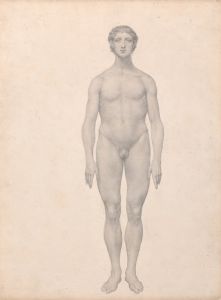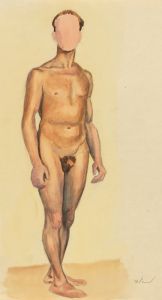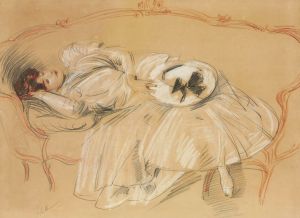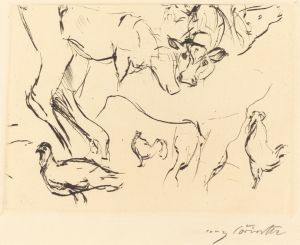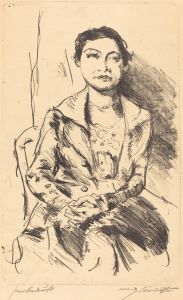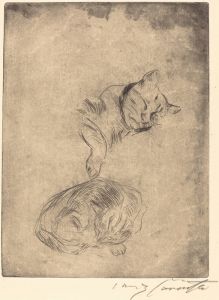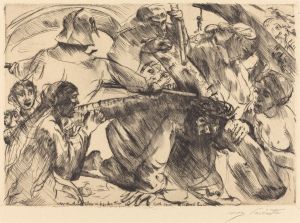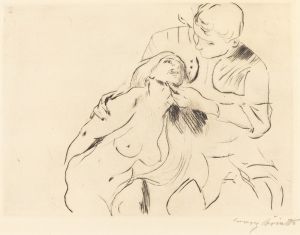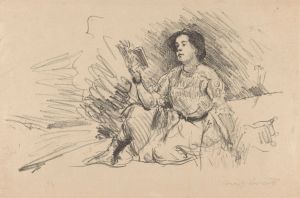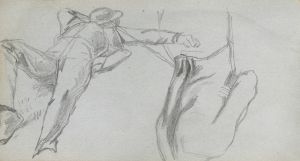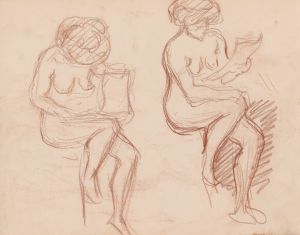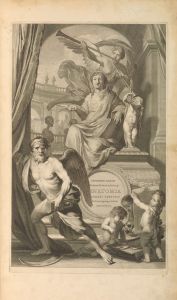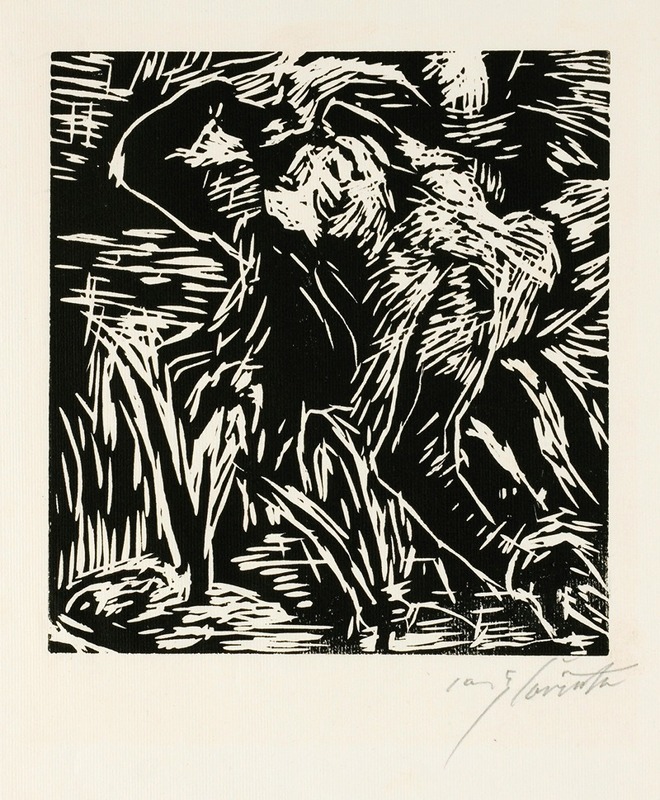
Rückwärts gebeugter, weiblicher Akt
A hand-painted replica of Lovis Corinth’s masterpiece Rückwärts gebeugter, weiblicher Akt, meticulously crafted by professional artists to capture the true essence of the original. Each piece is created with museum-quality canvas and rare mineral pigments, carefully painted by experienced artists with delicate brushstrokes and rich, layered colors to perfectly recreate the texture of the original artwork. Unlike machine-printed reproductions, this hand-painted version brings the painting to life, infused with the artist’s emotions and skill in every stroke. Whether for personal collection or home decoration, it instantly elevates the artistic atmosphere of any space.
Lovis Corinth was a prominent German painter and printmaker, known for his significant contributions to the transition from Impressionism to Expressionism in the late 19th and early 20th centuries. One of his notable works is "Rückwärts gebeugter, weiblicher Akt," which translates to "Female Nude Bending Backwards." This painting exemplifies Corinth's masterful handling of the human form and his ability to convey movement and emotion through his brushwork.
Created in 1909, "Rückwärts gebeugter, weiblicher Akt" is a striking example of Corinth's mature style, where he combines vigorous brushstrokes with a keen observation of the human anatomy. The painting depicts a female nude in a dynamic pose, bending backwards, which showcases Corinth's interest in capturing the vitality and expressiveness of the human body. The composition is both intimate and powerful, drawing the viewer's attention to the tension and grace of the figure's pose.
Corinth's use of color in this painting is notable for its richness and depth. He employs a palette that enhances the natural tones of the skin, while also incorporating contrasting hues to create a sense of volume and three-dimensionality. The background is often less detailed, serving to highlight the central figure and emphasizing the dramatic effect of the pose.
Lovis Corinth was born in 1858 in Tapiau, East Prussia, and studied art in Königsberg, Munich, and Paris. His early work was influenced by the Impressionists, but he gradually developed a more personal style that incorporated elements of both Impressionism and Expressionism. Corinth was a member of the Berlin Secession, an art movement that sought to challenge the conservative art establishment in Germany at the time.
Throughout his career, Corinth was fascinated by the human figure, and he produced numerous portraits and nudes. His work often explored themes of sensuality, mortality, and the passage of time, reflecting his deep engagement with both the physical and psychological aspects of his subjects. "Rückwärts gebeugter, weiblicher Akt" fits within this broader context of his oeuvre, demonstrating his skill in rendering the human form with both technical precision and emotional depth.
In addition to his paintings, Corinth was also a prolific printmaker, and his etchings and lithographs further showcase his versatility and creativity as an artist. Despite suffering a stroke in 1911, which affected his ability to paint, Corinth continued to work and adapt his style, producing some of his most powerful and expressive works in the later years of his life.
Lovis Corinth passed away in 1925, leaving behind a legacy that has had a lasting impact on the development of modern art in Germany and beyond. His work is celebrated for its dynamic energy, emotional intensity, and innovative approach to traditional subjects. "Rückwärts gebeugter, weiblicher Akt" remains an important piece within his body of work, exemplifying his mastery of form and his enduring interest in the complexities of the human condition.





